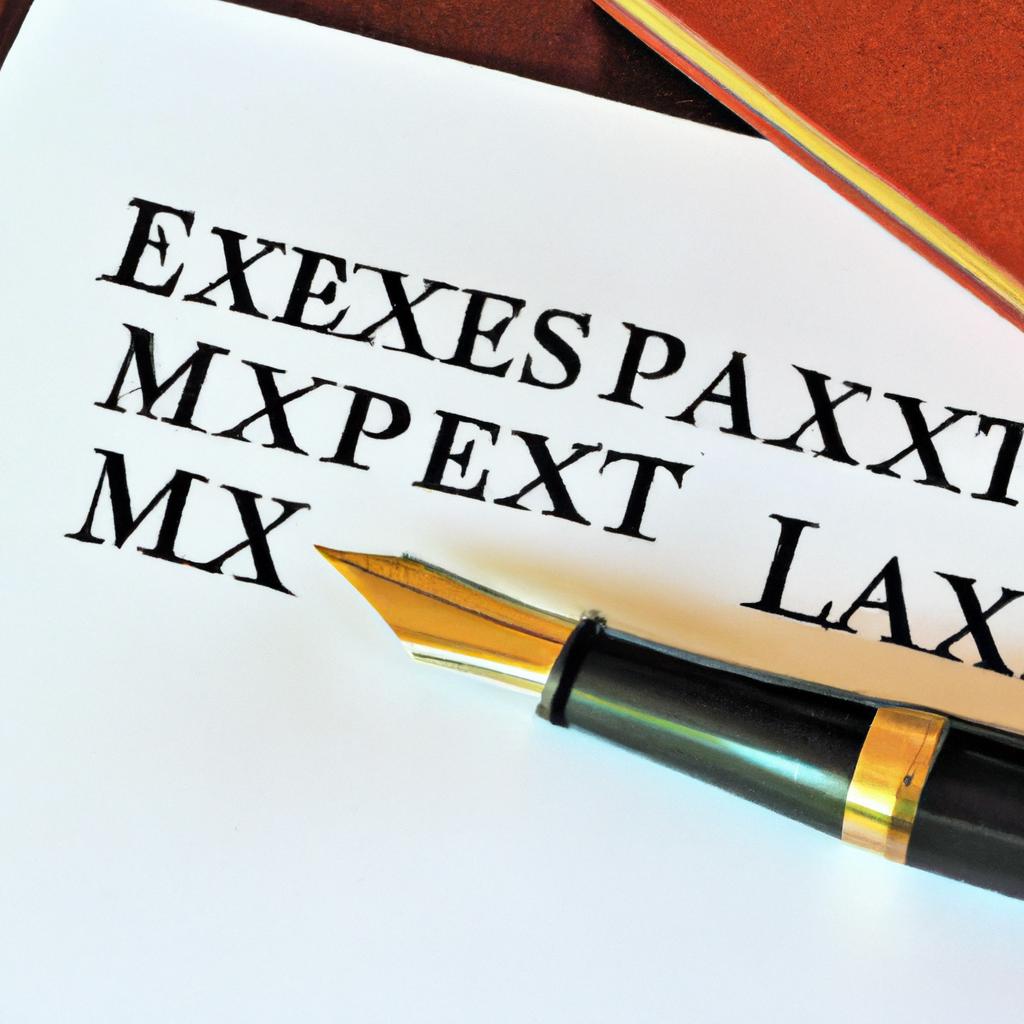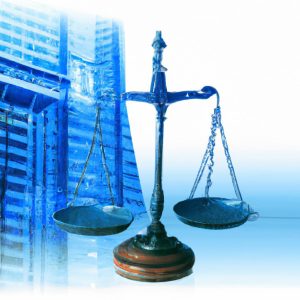In the intricate web of estate planning, the drafting of a will stands as a pivotal document that determines the distribution of one’s assets upon their passing. However, in the realm of will drafting, there exists a delicate balance between specificity and ambiguity that must be carefully navigated. As experienced practitioners in the field of estate planning, Morgan Legal Group is well-acquainted with the nuances of will drafting and the potential pitfalls that may arise. In this article, we shed light on the crucial aspects of what should never find its way into your will, in order to ensure a seamless transition of your assets to your loved ones.
Key Considerations When Drafting Your Will
When drafting your will, it is crucial to consider what assets and properties you want to include in your estate plan. However, there are certain items that should never be included in your will, as they may lead to complications or disputes among your beneficiaries. Here are some key considerations to keep in mind when drafting your will:
- Personal feelings: Your will is a legal document that outlines the distribution of your assets after your passing. It is not the place to express personal feelings or grievances towards individuals or family members. Keep the content of your will focused on the distribution of your assets and properties.
- Illegal instructions: It is essential to ensure that the instructions outlined in your will comply with state and federal laws. Including illegal instructions or requests in your will can lead to your entire document being deemed invalid.
- Specific funeral requests: While you may have specific preferences for your funeral arrangements, it is advisable to share these wishes with your loved ones verbally. Including detailed funeral instructions in your will may not be discovered until after the services have taken place. It is best to communicate these wishes directly with family members or a trusted individual.
| Assets | Location |
|---|---|
| Real Estate | New York City |
| Investments | Wall Street |

Common Mistakes to Avoid in Your Will
One common mistake to avoid in your will is including vague language or ambiguous terms. Be sure to clearly outline your intentions and wishes in a concise and specific manner. Avoid leaving room for interpretation or confusion, as this can lead to legal disputes and challenges in the future. Clearly define who will receive what assets and how they should be distributed to prevent any misunderstandings.
Another crucial error to steer clear of is neglecting to update your will regularly. Life circumstances change, such as marriages, divorces, births, deaths, and financial situations. It is essential to review and update your will periodically to ensure it accurately reflects your current wishes and circumstances. Failure to do so could result in unintended consequences or beneficiaries receiving assets you did not intend for them to have. Stay proactive and make necessary updates to your will to avoid future complications.
Assets That Should Not Be Included in Your Will
When creating a will, it is crucial to carefully consider which assets should be included and which should not. Some assets should not be included in your will due to various reasons, including their nature, ownership, or how they are transferred upon death. It is essential to understand the implications of including certain assets in your will to avoid potential complications for your beneficiaries in the future.
typically include:
- Jointly Owned Property: Assets owned jointly with rights of survivorship automatically pass to the co-owner upon your death and do not need to be included in your will.
- Retirement Accounts: Assets held in retirement accounts, such as 401(k) plans or IRAs, usually have designated beneficiaries and are transferred outside of the probate process.
- Life Insurance Policies: Proceeds from life insurance policies are paid directly to the named beneficiaries and are not subject to probate.

Maximizing the Effectiveness of Your Estate Plan
When creating your estate plan, it is essential to carefully consider what assets and properties to include in your will. While it may be tempting to try and cover every detail, there are certain items that should never be included in your will. By avoiding these common mistakes, you can help ensure that your estate plan is effective and properly executed.
One key item to avoid including in your will is any assets with designated beneficiaries, such as retirement accounts or life insurance policies. These assets bypass the probate process and go directly to the named beneficiary, regardless of what your will states. Additionally, it is crucial to avoid placing funeral instructions in your will, as wills are typically not read until after the funeral has already taken place. By carefully considering what to include in your will, you can help maximize the effectiveness of your estate plan and ensure that your wishes are carried out as intended.
Q&A
Q: Can I include joint assets in my will?
A: No, joint assets automatically transfer to the surviving owner upon your death and cannot be designated in your will.
Q: Can I leave my debts to someone in my will?
A: No, debts are typically settled from your estate before any assets are distributed to beneficiaries.
Q: Can I leave conditional gifts in my will?
A: It is not recommended to leave conditional gifts in your will as they may be difficult to enforce and could lead to disputes among your loved ones.
Q: Can I disinherit my spouse or children in my will?
A: In most jurisdictions, laws exist to protect spouses and children from being completely disinherited. It is important to seek legal advice if you wish to disinherit a family member.
Q: Can I specify funeral arrangements in my will?
A: While you can express your wishes for your funeral in your will, it is not legally binding and may not be carried out as you intended. It is best to make these arrangements with your loved ones in advance.
Future Outlook
In conclusion, when it comes to drafting your will, it’s important to consider the implications of including certain items or decisions that may cause confusion, conflict, or legal issues down the line. By avoiding the pitfalls outlined in this article, you can ensure that your final wishes are carried out smoothly and without unnecessary complications. Remember, it’s always best to seek professional guidance when creating such an important document to ensure that your legacy is preserved and respected. Thank you for reading and best of luck in your estate planning endeavors.
 Title: Understanding What Belongs on Your Will: A Guide to What You Should Never Include
Title: Understanding What Belongs on Your Will: A Guide to What You Should Never Include
Meta Title: Beware of These Items When Writing Your Will: What You Should Never Include
Meta Description: Writing your will might seem simple, but there are important details you should never include in it. Read on to understand what should never make it to your will and why.
As much as it’s essential to have a will, it’s equally crucial to do it right. A will is a legal document that outlines how you want your assets and personal matters to be handled after your death. It’s a vital part of estate planning, and it’s essential to ensure that it accurately reflects your wishes. However, there are certain things that you should never put in your will, as they can cause confusion or disputes among your loved ones. In this article, we’ll discuss what you should never include in your will, and why it’s important to avoid them.
1. Funeral Arrangements
While it’s natural to want to plan your funeral and final arrangements, your will is not the place to do it. A will is usually read after the funeral, so including funeral arrangements in it would be of no use. Additionally, wills are not legally binding regarding funeral wishes, so it’s better to discuss your plans with your loved ones beforehand, or even write them down in a separate document.
2. Jointly Owned Property
If you own property jointly with another person, such as a spouse or a business partner, you cannot leave your share of the property to someone else in your will. That’s because the surviving owner automatically becomes the sole owner of the property after your death. So, if you want to leave your interest in jointly owned property to a specific person, you’ll need to change the ownership documents.
3. Trust Assets
If you have assets that are held in a trust, you should never include them in your will. Trust assets are managed by a trustee, and they are not considered part of your estate. Attempting to include trust assets in your will can lead to complicated legal issues and delays in the distribution of your assets.
4. Your Digital Assets
With nearly everything being digital nowadays, it’s important to consider what will happen to your online accounts after your death. However, your will is not the place to list your digital assets. Most states have laws that govern digital assets and how they should be handled, so it’s best to check with an attorney or leave specific instructions for your online accounts in a separate document.
5. Retirement Accounts
Similar to trust assets, retirement accounts such as IRAs and 401(k)s have designated beneficiaries. These beneficiaries are entitled to receive the assets after your death, regardless of what is written in your will. Therefore, it’s important to review and update your beneficiary designations regularly to ensure they align with your wishes.
Benefits and Practical Tips: When it comes to writing your will, it’s essential to seek the advice of an experienced estate planning attorney. They can guide you through the process and help you avoid common mistakes that could cause issues in the future. Additionally, it’s important to regularly review and update your will. As your life circumstances change, so might your wishes for how your assets should be distributed.
Case Study: In 2006, the late actor Heath Ledger tragically passed away, leaving behind a will that was written in 2003. The will did not include his two-year-old daughter, Matilda, as a beneficiary. The court granted Matilda the entire estate, as it was clear that Ledger did not intentionally disinherit her. This case highlights the importance of regularly updating your will, especially after significant life events such as the birth of a child.
First-Hand Experience: Writing a will can be an emotional and daunting process, but it’s necessary to ensure your assets are distributed according to your wishes. When I wrote my will, I made sure to avoid the common mistakes by doing thorough research and consulting with an experienced attorney. It gave me peace of mind knowing that my loved ones would not have to deal with any additional stress or confusion after my passing.
In conclusion, your will is an important document that should accurately reflect your wishes and be legally binding. Avoid including funeral arrangements, jointly owned property, trust assets, digital assets, and retirement accounts in your will. Seek the guidance of an attorney and regularly review and update your will to ensure it remains relevant. Remember, your will is your final voice, so make sure it accurately reflects what you want to happen after you’re gone.





